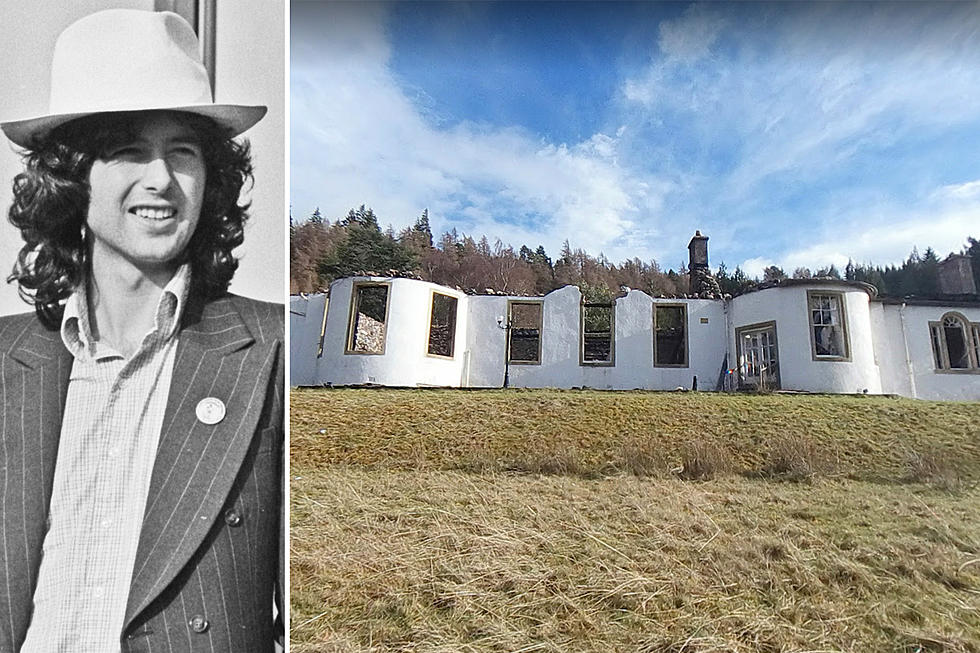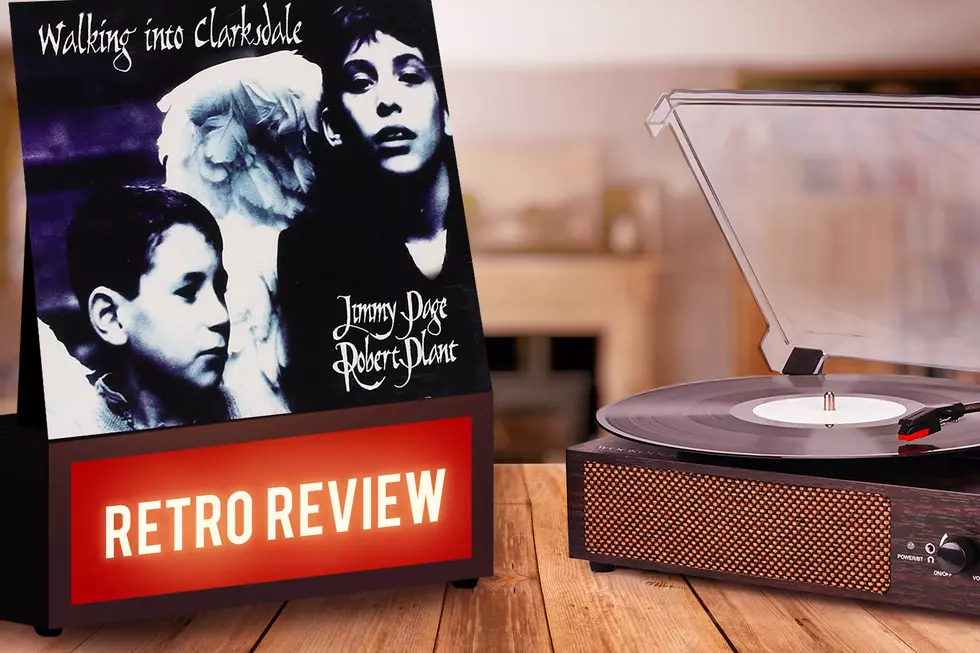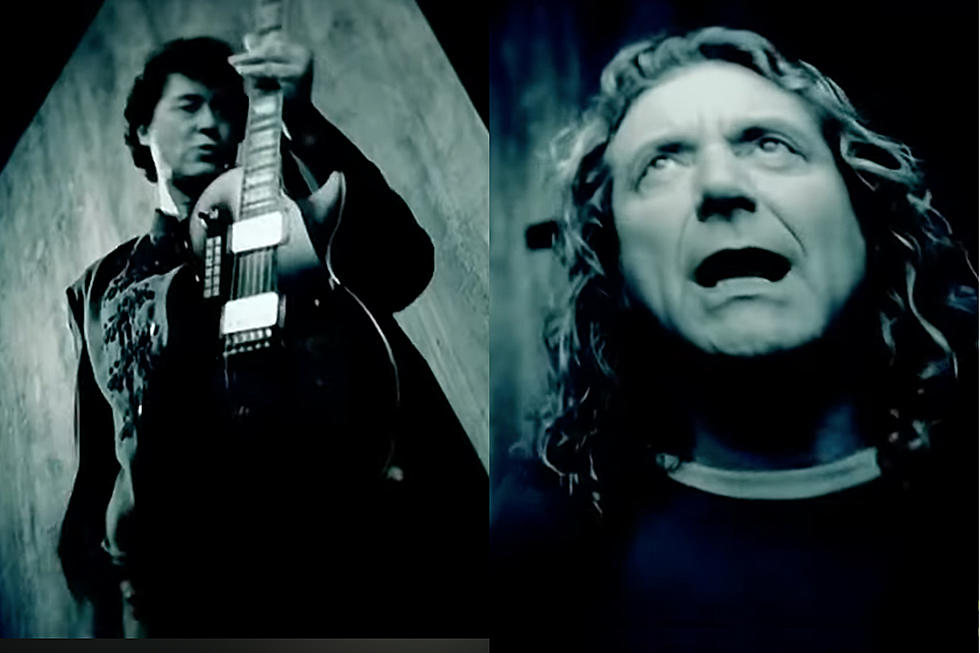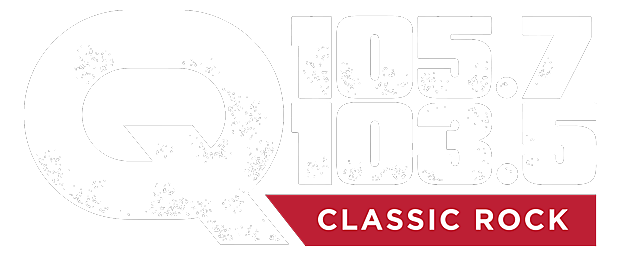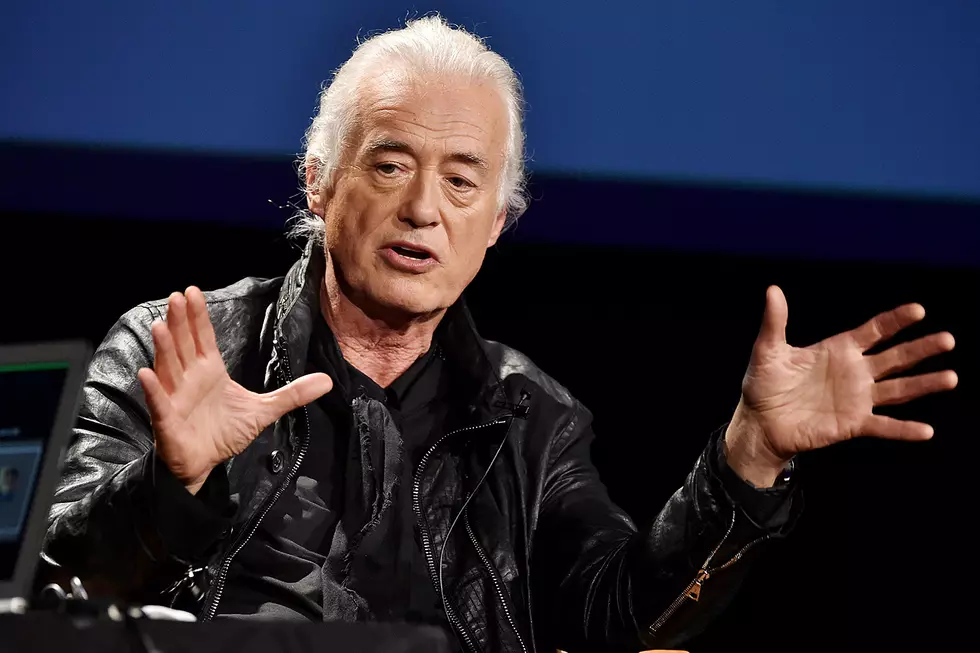
Jimmy Page on Odds of Releasing XYZ Demos: ‘It’s All Speculation’
Jimmy Page says "it's all speculation" whether the XYZ tapes — a series of 1981 demos he recorded with two then-former Yes members — will see official release.
"Unfortunately, we’ve lost [Yes bassist] Chris [Squire] now," the guitarist told Rolling Stone. "It was something that I always hoped to do, as some sort of project, to get hold of him and [Yes drummer] Alan White. It’s not even worth talking about, because it’s all speculation. I haven’t had a chance to really listen to the stuff and see just exactly what we do have, and what we don’t have. I don’t have any mixdowns of it. If I did, I’m not quite sure where they are now."
Page otherwise enthused about his brief time with the supergroup, dubbed "XYZ" to reflect their ex (X) membership in Yes (Y) and Led Zeppelin (Z). The trio played together during a transition time for all involved: Yes had disintegrated after their Drama tour, and Zeppelin disbanded after John Bonham's 1980 death.
Page said he was intrigued by the prospect of playing with two prog-rock legends — his first real musical collaboration after his band's breakup.
"If you know the precision of Yes, you know how technically brilliant they were," he told the publication. "And so I was in there with Chris Squire, the extraordinary bass player, and Alan White, the drummer, and they had suggested that we go it together. Why not do that? It was the first thing that I did after we’d lost John Bonham, and I thought, 'Well, if there’s ever anything like trying to jump in the deep end, this is it.' Because these guys are so good. And I mean, I’d heard the guitar playing [Yes'] Steve Howe would do and I thought, 'Well, let’s see how it works.'"
XYZ worked on a handful of songs at Squire's home studio, also recruiting Greenslade keyboardist Dave Lawson. Squire sang lead on the recordings, but they later tried to recruit Page's former bandmate Robert Plant, who ultimately passed on fronting the project. ("[He] came and listened to our music; he thought it was complicated," Squire told Noise11.com in 2012.)
On YouTube, fans can hear unofficial, low-fidelity demos of two instrumentals (one later reworked as "Mind Drive" for Yes' 1997 LP, Keys to Ascension 2; another that morphed into "Fortune Hunter," a 1986 track by Page's later supergroup the Firm) and two vocal-based cuts (one that became "Can You Imagine" from Yes' 2001 LP, Magnification; another that evolved from Yes' "Song No. 4 (Satellite)," a Drama outtake released on the album's 2004 CD reissue).
"I went in there, and we did some of the songs that they’d already worked on, and then I came up with my guitar parts for these things, and that was really interesting," Page told Rolling Stone. "And Chris was singing on them. I thought, 'I’ve really had to concentrate,' because it’s things in different time signatures. I mean it was a serious workout. But it was great. It was brilliant. And then I said, 'I’ve got one,' and I played them what actually becomes 'Fortune Hunter' with the Firm.
"And then I saw that actually they had trouble," he continued. "I thought, 'Oh, I see. OK. Well, they’ve really worked on what they’ve got here, which is probably all they do [with] all the Yes stuff. But it’s not just improvising."
Page looks back fondly on "Fortune Hunter," noting that it "was a totally different sort of onset when it was done with Chris … more like a guitar instrumental with Chris and I."
While the material might remain unreleased for the time being, Page has been hoping to release it for years — particularly after wrapping work on Led Zeppelin's recent reissue campaign.
"I haven’t worked on it. It’s something I wanted to do after all the Led Zeppelin stuff was out," he told Radio.com in 2015, emphasizing that he "absolutely" wanted to issue the recordings.
The Best Song From Every Led Zeppelin Album
More From Q 105.7

